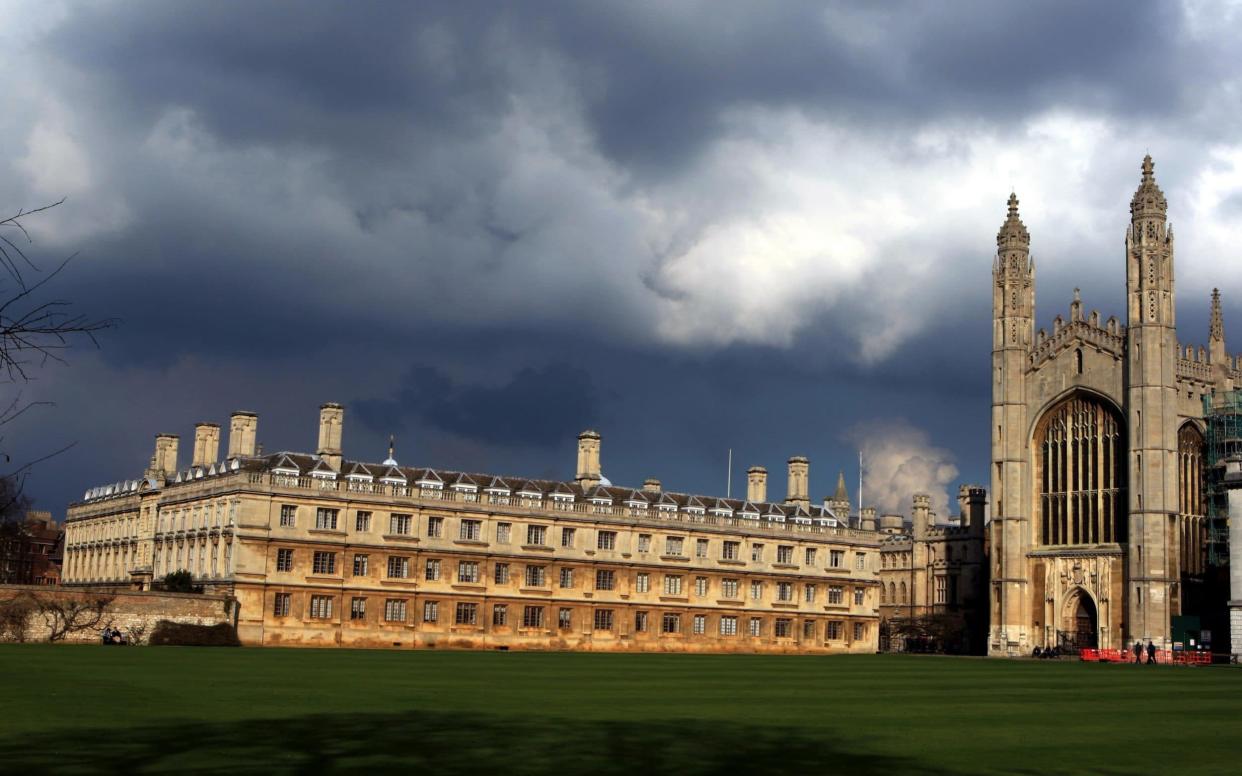Cambridge University faces increasing pressure over BP investments

Cambridge University is embroiled in a row about academic freedom over their investments in BP which have caused uproar among staff including the Government's climate change tsar.
The BP boss has been accused of issuing an "outrageous threat" to the university - which is currently reviewing whether to keep part of their £6.3bn endowment fund invested in fossil fuels - amid increasing pressure from both staff and students.
Bob Dudley, the company's chief executive, came under fire after telling an industry conference: ""We donate and do a lot of research at Cambridge so I hope they come to their senses."
The comments reignited the row just a week after 350 academics including Professor Sir David King, who was Britain’s Special Representative for Climate Change after his stint as the government’s Chief Scientific Advisor, and Professor Sir Thomas Blundell, the former president of the UK Science Council, wrote an open letter to Cambridge.
“We ... call on the university’s investment office to immediately freeze any new investments in fossil fuel companies, and to divest from direct ownership and any commingled funds that include fossil fuel public equities and corporate bonds within five years,” it said.
Cambridge University has repeatedly clashed with both academics and students over their investments in fossil fuels, part of the largest endowment fund in the UK, partly due to concerns over research funding.
BP, ExxonMobil and Shell have all donated money to the university and it has said in the past that it needs to consider the "consequences of any divestment".

In 2015/16 BP gave grants worth around 1.4 million pounds and in 2000 a 22 million pound donation from BP helped to create the BP Institute for Multiphase Flow, which researches ways of producing oil and gas more efficiently.
Activists in the Cambridge Zero Carbon Society Cambridge's said that Mr Dudley's comments mean that "Cambridge's academic independence is under threat"
They added: "University authorities are in hock to private interests, as demonstrated by this outrageous threat from BP’s Chief Executive...
"If the University is unable to divest its endowment in line with the democratic wishes of students and staff due to these threats, then there is no longer academic independence at Cambridge."
Cambridge University refused to comment on the row, instead referring to BP's press office.
The oil company emphatically denied that Mr Dudley's comments represented a threat.
A spokesman said: "BP has long worked closely with the University of Cambridge - and we don’t expect this to change. One should not infer from Bob’s comments that he was in anyway linking our support of Cambridge with the University’s decision on whether or not to divest from the oil and gas industry. That decision is up to the University and the University alone.”
Cambridge Zero Carbon Society responded by saying that if it was not an attempt at "blackmail" then "the last of University management's justifications for inaction is null and void. Do they have any actual reason for trampling on democracy other than not wanting to upset their corporate pals?"
Cambridge’s University Council will decide whether to change their investment in the coming weeks, with the campaign group calling on them to divest "not just for the sake of democracy, but also to salvage Cambridge's integrity."
Newcastle, Southampton and Durham universities have all divested from fossil fuel.
Cambridge MP Daniel Zeichner said: "I think that they were poorly judged comments from Mr Dudley. I think that that principle of separating scientific research from Government interference is a good thing and I am very happy that companies like BP invest but that doesn't give them any say over the direction of the research."
He said that it is "absolutely right that the pressure is kept up on Cambridge" as the divestment has broad support, including from within the institution, and they should use their global reputation to lead the way and "follow the science".

 Yahoo News
Yahoo News 
